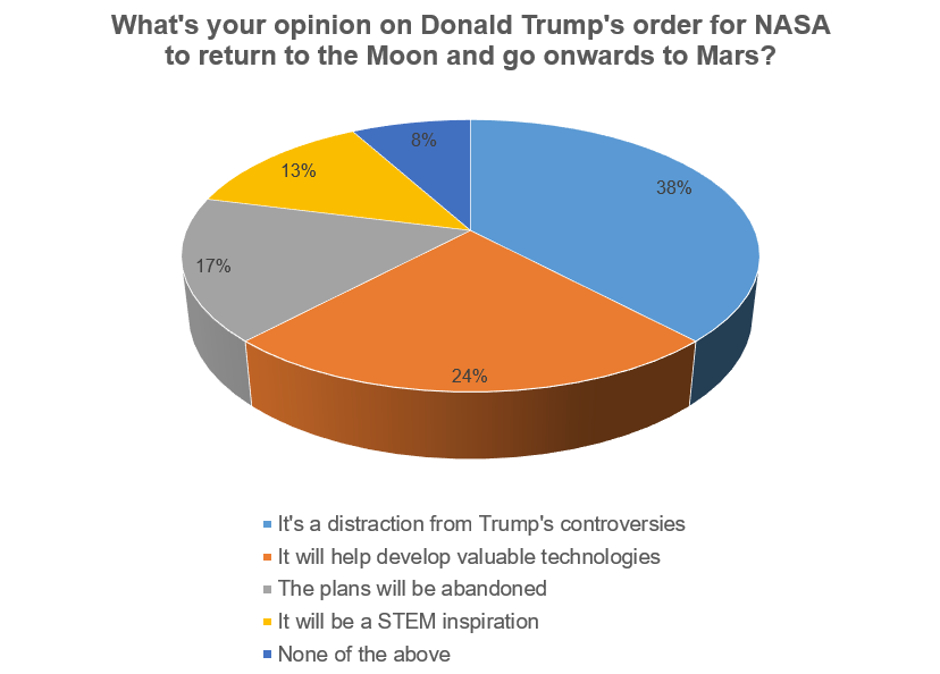
As we reported - unlike President Kennedy’s famous speech at the height of the Space Race in 1961 - Trump’s order is relatively vague and is in line with NASA’s existing plans to develop the Orion capsule, the giant Space Launch System rocket, and an orbital Deep Space Gateway.
Neither is it the first presidential order directing NASA to the moon; both Presidents Bush issued Space Vision directives calling for missions to the Moon and Mars, but such programmes are such long term goals that the clock ran down with no such missions going ahead.
We asked whether readers thought the plans would rekindle the glory-days of the space-race and drive technology development, or whether they were more cynical about Trump’s motives, and viewed the announcements as an effort to distract attention from the many controversies dogging his administration.
Reaction from the 644 respondents taking part was fairly mixed, although the majority (55 per cent) were sceptical about the plans, with 38 percent of the overall sample feeling that Trump’s plans are an attempt at distraction, and 17 per cent saying that the plans will never come to fruition.
37 percent of respondents were more positive, with 24 per cent of the overall sample agreeing that Trump’s plans will help drive technology development, and 13 per cent expecting the move to act as a STEM inspiration. 8 per cent of respondents chose “None of the above”.
Reader comments were generally in tune with the breakdown of the vote, with many expressing extreme scepticism over the president’s plans. “He’s just providing a temporary distraction from his disastrous premiership,” said Michael Reid.
Others, like Chris, whilst still agreeing it was a distraction, were supportive of the proposed goal. “This may turn out to be the only good thing DT will do,” he said.
Some respondents, such as Rod Evans, avoided the politics altogether, and said a return to the moon was long overdue. “This is a good instruction and returns NASA to its core competences,” he said. “We should never have stopped the moon project. The benefits to the scientific community from having a permanent manned base on the moon are huge.”
CLICK HERE FOR THE ENGINEER'S COVERAGE OF THE FIRST SPACE RACE





Nanogenerator consumes CO2 to generate electricity
Nice to see my my views being backed up by no less a figure than Sabine Hossenfelder https://youtu.be/QoJzs4fA4fo